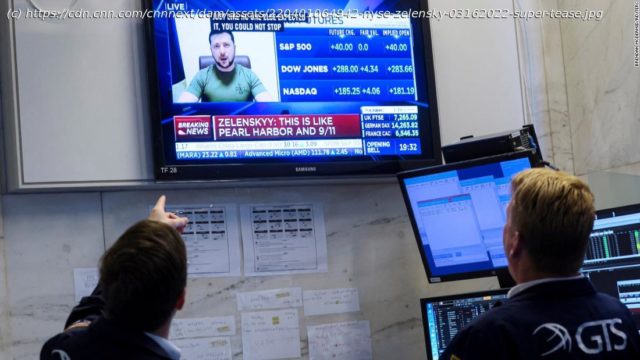The US stock market just logged its most tumultuous quarter since the start of the pandemic, as rising inflation and Russia’s invasion of Ukraine spooked investors and encouraged companies to think twice about pursuing mergers or Wall Street debuts.
What’s happening: The S&P 500 fell almost 5% between January and March. It was the index’s worst three-month period since the first quarter of 2020, when it plunged 20%. This turbulent environment triggered a chill in dealmaking on the heels of a record year for mergers and acquisitions and initial public offerings. Data from Refinitiv published Friday shows that the number of global M&A deals plummeted 19% in the first quarter compared to 2021, falling from about 14,700 to nearly 12,000. IPOs also dried up, even though there’s a long list of companies that have expressed interest in going public. The global IPO market registered just 321 deals that raised $54.4 billion in the first quarter, according to consultancy EY. The amount of money raised dropped 51% year-over-year. In the Americas, proceeds fell 95% to just $2.4 billion. The year had started off strong. January produced the strongest opening month for global IPOs in 21 years by proceeds, EY said. In early February, Chinese video app Kuaishou raised $5.3 billion via its Hong Kong debut. Mega-deals also grabbed headlines, such as Take-Two Interactive’s purchase of Zynga and Microsoft’s acquisition of Activision Blizzard ( ATVI) in January. But the war in Ukraine quickly changed the picture. «Increased volatility in the markets and uncertainties surrounding geopolitical crises, oil prices, inflation and supply chain disruption could negatively impact companies’ profits and growth trajectory,» Rachel Gerring, EY Americas IPO leader, told me. «As a result, we’re seeing a pause as companies navigate these conditions.» Gerring thinks the halt in dealmaking is likely to be temporary, and the mood could change if Wall Street becomes more confident about the future.






